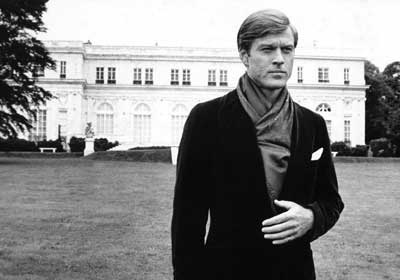This is an interesting list…
Book Magazine, now defunct, compiled a panel of 55 authors, literary agents, editors, and actors in 2002 to “rank the top one hundred characters in literature since 1900.”
- Jay Gatsby, The Great Gatsby, F. Scott Fitzgerald, 1925
- Holden Caulfield, The Catcher in the Rye, J. D. Salinger, 1951
- Humbert Humbert, Lolita, Vladimir Nabokov, 1955
- Leopold Bloom, Ulysses, James Joyce, 1922
- Rabbit Angstrom, Rabbit, Run, John Updike, 1960
- Sherlock Holmes, The Hound of the Baskervilles, Sir Arthur Conan Doyle, 1902
- Atticus Finch, To Kill A Mockingbird, Harper Lee, 1960
- Molly Bloom, Ulysses, James Joyce, 1922
- Stephen Dedalus, Portrait of the Artist as a Young Man, James Joyce, 1916
- Lily Bart, The House of Mirth, Edith Wharton, 1905
- Holly Golightly, Breakfast at Tiffany’s, Truman Capote, 1958
- Gregor Samsa, The Metamorphosis, Franz Kafka, 1915
- The Invisible Man, Invisible Man, Ralph Ellison, 1952
- Lolita, Lolita, Vladimir Nabokov, 1955
- Aureliano Buendia, One Hundred Years of Solitude, Gabriel Garcia Marquez, 1967
- Clarissa Dalloway, Mrs. Dalloway, Virginia Woolf, 1925
- Ignatius Reilly, A Confederacy of Dunces, John Kennedy Toole, 1980
- George Smiley, Tinker, Tailor, Soldier, Spy, John LeCarre, 1974
- Mrs. Ramsay, To the Lighthouse, Virginia Woolf, 1927
- Bigger Thomas, Native Son, Richard Wright, 1940
- Nick Adams, In Our Time, Ernest Hemingway, 1925
- Yossarian, Catch-22, Joseph Heller, 1961
- Scarlett O’Hara, Gone With the Wind Margaret Mitchell, 1936
- Scout Finch, To Kill A Mockingbird, Harper Lee, 1960
- Philip Marlowe, The Big Sleep, Raymond Chandler, 1939
Read the whole list here.

It doesn’t come as a surprise to see Jay Gatsby on the list of the top 100 characters in English Literature since 1900. Some like this protagonist of ‘The Great Gatsby‘, while others don’t. The fact is, you can’t be indifferent to him. It’s like the end justifies the means, in this case, getting Daisy back into his life. Hence, the dubious means by which Gatsby gained his wealth is o.k. I found some very interesting comments on Shmoop.com that helped me understand the novel as whole, both as a book of history (as it throws light on the society of the 1920s) and, as a work of fiction.